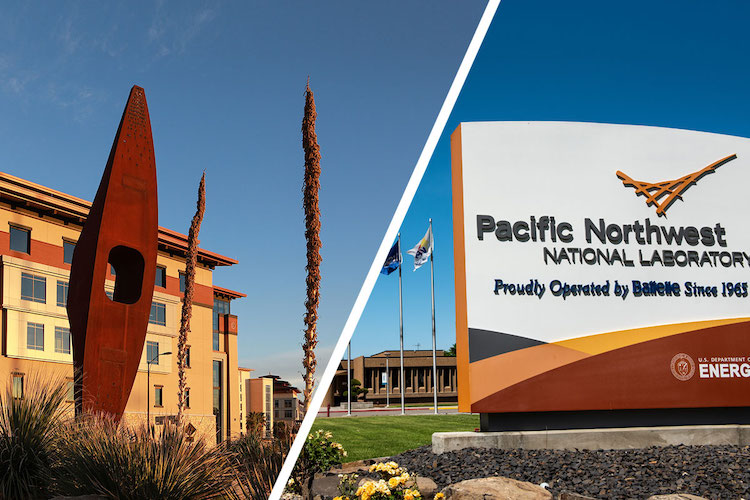
UTEP Physicists Collaborate with National Lab to Broaden Access to Tools for Scientific Discoveries
Researchers in The University of Texas at El Paso Physics Department are part of a bold new effort to make computational chemical physics more broadly available to scientists in academia and industry.

The TEC4 initiative, led by Pacific Northwest National Laboratory (PNNL), is one of eleven projects funded by the Department of Energy to speed up the transition of important scientific discoveries into technological and practical applications.
“This will mark the democratization of access to high-performance computational chemistry capabilities,” said PNNL scientist Karol Kowalski, who leads the effort. “There are many people with very good ideas, with their codes already written, and we intend to give them the resources they need to put their ideas into action.”
Computational chemical physics is a discipline that uses high-performance computing to solve extremely complex problems related to renewable energy and quantum science, the study of the smallest and most fundamental elements of matter and energy. High-performance computers can process enormous amounts of data (such as the behavior of atoms in a molecule in trillions of scenarios). This enables scientists to run simulations and test hypotheses much more quickly than they could otherwise. With the right resources in place to transfer knowledge, the research being undertaken by the TEC4 team could be used by industry to build better batteries, improve solar panels and enhance clean energy technologies, to name a few examples.
The team of investigators will collect and make available a wide range of tools, including one pioneered by UTEP physicists Mark R. Pederson, Ph.D., and Tunna Baruah, Ph.D. Pederson and Baruah recently discovered a new paradigm that allows for more effective design of energy-relevant technologies. Their most recent publication in the Journal of Chemical Physics showed that this tool correctly describes the behavior of charged molecules in water — a problem that has resisted solution with more conventional methods. Charged particles occur naturally in water and even affect its taste. More importantly, understanding of charged particles in solution is essential to developing innovative clean energy technologies.
“One of the biggest challenges to the effective release of computational-science tools is to simultaneously ensure ease of use with reliable results but still allow individualized contributions by the growing computational chemical physics community,” said Mark Pederson.
He added, “We are especially interested in using this opportunity to create physics workforce opportunities for the local community and provide computational tools that will hasten research in the area of renewable energy.”
UTEP and PNNL have a long-standing relationship that was formalized in a memorandum of understanding signed by both institutions in October of 2022. The agreement ensures that UTEP students have access to employment and research opportunities at PNNL and that researchers at UTEP can take advantage of PNNL’s state-of-the-art equipment and vice versa.
“I am especially excited about giving UTEP graduate students the opportunity to simultaneously perform world-class research and ensure that their discoveries can be used by a broader community using energy-efficient computing paradigms,” said Baruah.
Microsoft Corp, Microsoft Azure Quantum, and Micron Technology are also part of the TEC4 project and will work with PNNL, UTEP and other partners to provide the platforms that will allow for high-level computing.
Last Updated on October 23, 2023 at 12:00 AM | Originally published October 23, 2023
By MC Staff UTEP Marketing and Communications
